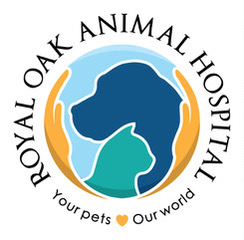Library
-
Redirected aggression occurs when a cat is aroused by another animal, person or event, but is unable to direct aggression toward the stimulus. For example, your cat is sitting on a windowsill and sees another cat out on the property.
-
The leading causes of aggressive behavior among household cats are territorial aggression, fear-based aggression, and incompatible personalities. There may be more than one type of aggression occurring simultaneously. This explains the common forms of inter-cat aggression and how they may be prevented.
-
Some cats that appear to be perfectly comfortable resting in a lap can suddenly turn around, bite, and run away. There are ways to reduce the likelihood that your cat will bite you. Treatment will depend on the specific reason for the behavior.
-
The Feline Veterinary Medical Association (FelineVMA) is committed to excellence in healthcare for cats. FelineVMA launched the Cat Friendly Practice program in 2012. To earn the Cat Friendly Practice designation, a veterinary practice must show that they have implemented feline-friendly standards of care. A Cat Friendly Practice is committed to making your cat’s healthcare delivery more pleasant for both you and your cat.
-
A cat-only veterinary practice is typically designed and built with cat comfort in mind. Feline Practices are especially interested in delivering medical care to cats in ways that help the cat (and her human family members) experience as little stress as possible. Cats need to see their veterinarians for preventive care. It is recommended that cats be seen by their veterinarian twice per. You can make regular veterinary assessment as easy as possible for your cat by seeking out a cat only veterinary practice.
-
Cataract formation is a reasonably well-known occurrence in pet birds. Canaries are more prone to cataract formation than other species of birds. Cataracts may be inherited or be secondary to a traumatic injury or infection involving one or both eyes.
-
Periodontal disease is the most common problem affecting cats of all age groups. The importance of daily dental home care cannot be overemphasized. Nutrition can contribute to preventing periodontal disease and gingivitis.
-
Online shopping for convenience and great prices has quickly become the new normal in today's consumerism society. Although technology may help us be savvy shoppers, it's still good to be cautious about what you purchase online, especially when it comes to your pet's medications.
-
The aristocratic but playfully affectionate Cavalier King Charles Spaniel looks like he leapt straight out of a Renaissance painting. Sweet and docile, cuddly and adaptable, Cavaliers can be anything you want them to be.
-
Cefpodoxime is a third-generation cephalosporin antibiotic used to treat skin infections in dogs. It is also used off-label in cats and to treat other types of infection. It is given orally in tablet or liquid form. Side effects are uncommon. If a negative reaction occurs, contact your veterinarian.


